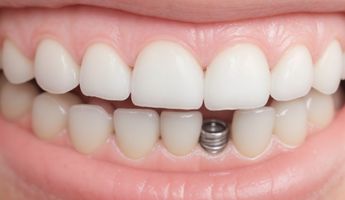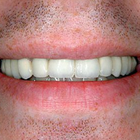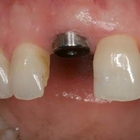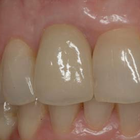Dental Implant in United States
Search and Compare the Best Clinics and Doctors at the Lowest Prices for Dental Implant in United States

Find the best clinics for Dental Implant in United States
With Medijump you can browse 15 facilities offering Dental Implant procedures in United States. The cheapest price available is $1,000 in New York City. And for the cheapest price globally, prices start from $1 in Vietnam.
Dental Implant in New York City
Price: $ 1,000
Vietnam offers the best prices Worldwide
Price: $ 1
From 35 verified reviews
Jacqueline Singh, 20 August 2020
Costumer service, (it is impeccably).The lady I spoke to on the phone, she breaks everything down, as it relates to the services, that they provide.👍👍
From 49 verified reviews
Ryan Gardner, 21 August 2020
So glad Dr. Satvat is back seeing patients! Very much appreciate the great care provided by Dr. Satvat and the professional recommendations for cosmetic concerns. Thanks and see you again soon! - Ryan
From 83 verified reviews
Omar Mulero, 11 September 2020
Chicago Dental Boutique is fantastic! My visit was one of the best experiences I've had at a dentist office. The staff was extremely kind and professional. The precautions they are taking for COVID made me feel extremely safe and I had not even the slightest worry about possibly getting sick.
From 131 verified reviews
Gabby Ortiz, 19 September 2020
I had such an amazing experience at Downtown Dental. I was traveling from out of state and developed severe tooth pain and they were able to fit me in next day. Youstina and Allison made me feel so comfortable and assured I received adequate care at their offices!
From 84 verified reviews
Claire Redden, 19 September 2020
As you can probably guess I was not looking forward to my root canal appointment! I was expecting a lengthy and painful experience, however I was surprised to be in and out of the office within an hour! They did a great job, and everyone was super friendly. The dentist checked on me multiple times throughout the appointment to make sure I was doing okay and not feeling any pain. It was very appreciated!! Thank you!
From 8 verified reviews
Ilene Lane, 18 September 2020
I been coming to 505 for fifteen years if any one want Excellent Work done stop by every ones welcome .They did a Exciting work on my Dentures I’m smiling from ear to ear and I’m so happy thank you soooo much
From 8 verified reviews
Ann Herbalife, 17 September 2020
Dr Fedida and Michelle are very professional and I was very pleased with how well everything was done. 👍🏿
From 26 verified reviews
Lee Kinkade, 11 August 2020
I had a vertically fractured tooth that needed to be surgically extracted. My dentist refered me here, and I am very pleased with the results. The oral surgeon explained the possible treatments clearly, and respected my wish to not do a human bone transplant and suggested an alternative, BMP, to stimulate growth so I could later get a transplant and a crown. The extraction went very smoothly, with very good numbing, so I did not have pain during the procedure. He gave me good advice on how to manage with OTC pain meds and I never needed to use any from the prescibed pain killers. At two weesks out, it is healing nicely and I have not needed any painkillers for a week. They worked with my HMO insurance and were very clear about what was covered and what was not and there there no surprises in billing. I am now planning to have them do the implant in the coming months. The office staff were helpful and kind and very clear in their communications. The office was comfortable and pleasant.
From 137 verified reviews
Nikolaos Mastromihalis, 16 September 2020
Everyone in this hospital is lovely and helpfully people's 🤩
From 135 verified reviews
Binta Barry, 22 September 2020
This is a great hospital with a good doctor I been coming in this hospital since 2013 with all my Family I love Jacobi Hospital.
Broadway family dental pc, located in Brooklyn, New York City, United States offers patients Dental Implant procedures among its total of 1 available procedures, across 1 different specialties. The cost of a Dental Implant procedure ranges from $1,575 to $2,000, whilst the national average price is approximately $1,494. There are many specialists available at the Dental, with 14 in total, and they are not accredited by any recognized accreditations institutes
Santa Monica Center, located in Santa Monica, Los Angeles, United States offers patients Dental Implant procedures among its total of 38 available procedures, across 2 different specialties. Currently, there's no pricing information for Dental Implant procedures at Santa Monica Center, as all prices are available on request only, whilst the national average price is approximately $1,494. There are many specialists available at the Clinic, with 4 in total, and they are not accredited by any recognized accreditations institutes
National Dental, located in Queens, New York City, United States offers patients Dental Implant procedures among its total of 55 available procedures, across 2 different specialties. Currently, there's no pricing information for Dental Implant procedures at National Dental, as all prices are available on request only, whilst the national average price is approximately $1,494. All procedures and treatments are undertaken by the lead specialist at the Dental, and they are not accredited by any recognized accreditations institutes
Manhattan Periodontics & Implant Dentistry, located in Manhattan, New York City, United States offers patients Dental Implant procedures among its total of 35 available procedures, across 2 different specialties. Currently, there's no pricing information for Dental Implant procedures at Manhattan Periodontics & Implant Dentistry, as all prices are available on request only, whilst the national average price is approximately $1,494. There are many specialists available at the Dental, with 15 in total, and they are accredited by AAID - American Academy of Implant Dentistry
UL Health, located in Illinois Medical District, Chicago, United States offers patients Dental Implant procedures among its total of 64 available procedures, across 22 different specialties. Currently, there's no pricing information for Dental Implant procedures at UL Health, as all prices are available on request only, whilst the national average price is approximately $1,494. There is currently a lack of information available on the specialists practicing at the Hospital, and they are not accredited by any recognized accreditations institutes
- Home
- United States
Compare Before & After Photos of _procedure_photos.phpDental Implant


Front view


Front view


Front view


Front view


Front view
WHY US?
At Medijump, we're making medical easy. You can search, compare, discuss, and book your medical all in one place. We open the door to the best medical providers worldwide, saving you time and energy along the way, and it's all for FREE, no hidden fees, and no price markups guaranteed. So what are you waiting for?

Free

Best Price

Widest Selection

Risk-Free
What you need to know about Dental Implant in United States

A dental implant is a medical device that provide support to artificial teeth. It's surgically placed into the jaw to act as a replacement for the root of a missing or damaged tooth, which in turn serves to hold a replacement tooth or bridge. It functions and looks much like a real tooth, restoring your ability to chew and improves your overall appearance. Dental implant surgery is considered as a better alternative to dentures or bridgework that does not fit well. It also offers a great option for people when they do not have enough natural teeth roots left to build denture or bridgework replacements.
Since dental implants eventually fuse with your jawbone over the span of several months, it won’t make noise, slip, or cause bone damage the way dentures or bridgework might. Dental implants also enable natural speech, look and feel like your own teeth, make eating easier, and improves your appearance. However, the surgery may involve several stages, and, in some cases, it may require two separate visits to the clinic to complete. Ensure to look for a specialist in a reputable clinic for the best results.
What is the cost of Dental Implant in United States?
Price differences abound in United States for Dental Implant based on the clinic, the proficiency of the surgeon, and the individual requirements of the patients. It's essential to realize that dental insurance usually doesn't cover the entire bill for this treatment, though it might cover a part. Several dental clinics provide finance schemes or payment alternatives to assist in easing the financial burden. For more precise cost estimates, reach out to your dental service provider or a nearby clinic.
What does a Dental Implant Procedure Involve?
Dental implant surgery generally requires several stages. Each stage may be performed under general or local anesthetic. The first stage is removing the damaged tooth. Then, if your jawbone is too soft or not thick enough, your dentist may perform bone grafting to create a more solid base for the implant. The bone graft may be natural (taken from another part of your body) or synthetic (a bone-substitute material). If you only need minor bone grafting, the implant surgery can be performed on the same day. However, if you need a significant amount of bone graft, the implant surgery may have to be postponed until the transplanted bone grows enough new bone to support the dental implant.
The next stage after the damaged tooth removal and bone graft (if you need one) is placing the dental implant. To do this, your dentist makes an incision to expose the bone and puts the metal implant post deep into the bone. At this stage, you will still have a gap where your tooth is missing. Your dentist will place a temporary denture for appearance. Once the metal implant post is placed, osseointegration begins. This is a process where the jawbone grows into the surface of the implant and can take several months to complete. After osseointegration is complete, your dentist will place the abutment, which is a small connector post that will hold your new tooth. The final stage, after the abutment is placed, is placing the crown, which is the tooth-looking part. You can choose between a removable crown and a fixed crown.
How Long Should I Stay in United States for a Dental Implant Procedure?
The length of your stay in United States for a Dental Implant depends on numerous considerations like the intricacies of the procedure, the quantity of implants required, and your personal recovery process. Each stage of dental implant surgery is done in separate appointments. After each appointment, you should be able to leave the hospital or clinic right away. However, you should stay in United States for at least 2 weeks for completion of the work, the initial recovery time, and follow-up checkups.
What's the Recovery Time for Dental Implant Procedures?
The recuperation duration following a Dental Implant or dental implant operation can widely vary and is shaped by multiple aspects. Initial healing of the tissue might require only a handful of days, but complete osseointegration (the fusion of the implant with the jawbone) generally spans several months. This window could be extended for patients requiring auxiliary procedures such as bone grafts, or those with prevailing health issues that may impede the healing process.
Post-procedure, it's not unusual to experience a degree of discomfort, which could manifest as minor pain, swelling of your gums and face, skin and gum bruising, and slight bleeding. Such symptoms are a standard phase of the recovery process and should alleviate within a fortnight. In this interim, it's advisable to stick to a soft diet to not overload the implant site with undue pressure. Any strenuous physical exertion should be put off to circumvent potential complications.
Maintaining excellent oral hygiene is paramount to facilitate healing and stave off infection. Regular brushing and flossing, being particularly gentle around the surgical area, coupled with rinsing your oral cavity with warm saline water, can contribute to keeping the region hygienic.
What sort of Aftercare is Required for Dental Implant Procedures?
After each stage of surgery, you may have to eat soft foods. Since you may experience swelling, bruising, pain, and minor bleeding, your dentist will prescribe pain medications or antibiotics to help ease your discomfort. During your recovery period, you need to avoid smoking as it can contribute to implant failure and complications.
No special care is required for dental implants. Nonetheless, you need to practice good oral hygiene in order to maintain the implant and your remaining natural teeth. Make sure to brush your teeth twice a day, floss daily, and rinse your mouth with an antiseptic mouthwash. You also need to see your dentist regularly and avoid damaging habits, such as chewing hard items.
What's the Success Rate of Dental Implant Procedures?
The efficacy of Dental Implant, alternatively referred to as dental implants, in United States, is typically impressive, boasting effectiveness percentages as high as 98% in some studies. This positions dental implants as one of the most reliable procedures within dental care's realm. Nevertheless, it's worth mentioning that the success rates might fluctuate, influenced by several factors.
The patient's overall health is a key determinant of the thriving outcome of a dental implant procedure. Individuals exhibiting optimal health usually witness higher success rates. Pre-existing health issues like diabetes, osteoporosis, and periodontal ailments can theoretically impact the efficacy of the implant.
Additional contributing factors to the success rate encompass the quality and abundance of the individual's bone structure. Patients boasting plentiful, healthy bone are ordinarily the perfect candidates for dental implants. However, those who have experienced bone loss might need to undergo a bone grafting procedure before the implant procedure. This step can provide a robust base for the implant and enhance the chances of a successful result.
Are there Alternatives to Dental Implant Procedures?
If you are not a candidate for dental implant surgery, or you simply do not want to undergo the procedure, you can opt for the alternatives. The alternatives include:
- Mini dental implants, which is a small type of dental implants. The structure is similar to regular dental implants, but are somewhat smaller in size. Unlike regular dental implants, dentists can often place mini implants only in one visit using local anesthesia. You may also be able to use your new teeth on the same day.
- A same-day implant is essentially similar to traditional dental implants. However, your dentist performs the whole process in just one day, skipping the process of wound healing and osseointegration.
- Implant-supported dentures or All-on-4 is an alternative if you need to fix a complete upper or lower set of teeth. During this procedure, four to six implants are placed into your jawbone as a base to attach and stabilize your denture.
What Should You Expect Before and After the Dental Implant Procedure?
Grasping what lies ahead before and post the Dental Implant can lessen potential worries and guarantee you are fully equipped for the upcoming journey. Prior to the procedure, your dental practitioner will conduct an all-inclusive dental assessment. This check-up may encompass dental X-rays and sophisticated 3D imaging to examine the status of your oral cavity.
The dental professional will also explore your medical history. If you're suffering from specific heart disorders or orthopedic implants, your dental practitioner might suggest antibiotics to avert infection. A personalized treatment blueprint, customized to your circumstances, will be constructed. This strategy takes into account factors like the amount of teeth you need substituted and the state of your jawbone. The procedure is typically carried out under local anesthesia to mitigate any discomfort.
Subsequent to the operation, experiencing slight unease is usual. You might witness inflammation of your face and gums, discoloration of your skin and gums, soreness at the insertion area, and insignificant bleeding. Your dental specialist will recommend medications to soothe these indicators. In case inflation, unease, or any other complications intensify in the days post-operation, it's crucial to reach out to your oral surgeon. Post-operation will require you to consume mushy foods as the operated site recovers. Moreover, you'll be guided to abstain from smoking, as it can hinder recovery and influence the triumph of the dental implant.
Following the positioning of the implant, the healing process, and fusion with the bone (osseointegration) transpire over an extended period. During this interval, maintaining robust oral cleanliness is vital. This involves frequent brushing, the use of dental floss, and cleansing with an antibacterial mouthwash. Periodic dental examinations are obligatory to track progress and confirm the well-being and effectiveness of the implant.
What are Potential Risks of Dental Implant?
Despite Dental Implant boasting remarkable effectiveness, it is, as any surgical operation, not without risks and potential difficulties. The chances of encountering these issues are often minute and irregularities are infrequent, yet it remains critical for patients to comprehend these possibilities before undertaking the procedure.
Complications and side effects may include:
- Implant failure
- Nerve injury
- Infection
- Sinus problems
- Damage to surrounding structures, such as other teeth or blood vessels
How long does a Dental Implant last?
The durability of a Dental Implant is heavily reliant on the individual's oral cleanliness and general wellbeing. Nonetheless, with appropriate upkeep and care, dental implants have the potential to stand the test of time. The titanium pillar inserted into the jawbone during surgery is crafted to be everlasting, while the dental cap fastened to the anchor may necessitate substitution every decade or decade and a half due to normal usage. Yet, with outstanding dental management and habitual screenings, the cap has the potential for lifelong endurance.
Whilst the information presented here has been accurately sourced and verified by a medical professional for its accuracy, it is still advised to consult with your doctor before pursuing a medical treatment at one of the listed medical providers
No Time?
Tell us what you're looking for and we'll reachout to the top clinics all at once
Enquire Now

Popular Procedures in United States
Prices Start From $1

Prices Start From $1

Prices Start From $48

Prices Start From $1

Prices Start From $1

Prices Start From $11

Prices Start From $1

Prices Start From $45

Recommended Medical Centers in United States for Dental Implant

- Interpreter services
- Translation service
- Religious facilities
- Medical records transfer
- Medical travel insurance
- Health insurance coordination
- TV in the room
- Safe in the room
- Phone in the room
- Private rooms for patients available

- Interpreter services
- Translation service
- Religious facilities
- Medical records transfer
- Medical travel insurance
- Health insurance coordination
- TV in the room
- Safe in the room
- Phone in the room
- Private rooms for patients available

- Interpreter services
- Translation service
- Religious facilities
- Medical records transfer
- Medical travel insurance
- Health insurance coordination
- TV in the room
- Safe in the room
- Phone in the room
- Private rooms for patients available

- Interpreter services
- Translation service
- Religious facilities
- Medical records transfer
- Medical travel insurance
- Health insurance coordination
- TV in the room
- Safe in the room
- Phone in the room
- Private rooms for patients available

- Interpreter services
- Translation service
- Religious facilities
- Medical records transfer
- Medical travel insurance
- Health insurance coordination
- TV in the room
- Safe in the room
- Phone in the room
- Private rooms for patients available

- Interpreter services
- Translation service
- Religious facilities
- Medical records transfer
- Medical travel insurance
- Health insurance coordination
- TV in the room
- Safe in the room
- Phone in the room
- Private rooms for patients available

- Interpreter services
- Translation service
- Religious facilities
- Medical records transfer
- Medical travel insurance
- Health insurance coordination
- TV in the room
- Safe in the room
- Phone in the room
- Private rooms for patients available

- Interpreter services
- Translation service
- Religious facilities
- Medical records transfer
- Medical travel insurance
- Health insurance coordination
- TV in the room
- Safe in the room
- Phone in the room
- Private rooms for patients available

- Interpreter services
- Translation service
- Religious facilities
- Medical records transfer
- Medical travel insurance
- Health insurance coordination
- TV in the room
- Safe in the room
- Phone in the room
- Private rooms for patients available

- Interpreter services
- Translation service
- Religious facilities
- Medical records transfer
- Medical travel insurance
- Health insurance coordination
- TV in the room
- Safe in the room
- Phone in the room
- Private rooms for patients available
Dental Implant in and around United States
About the United States
With a population of over 327 million people, the United States of America (USA) is the third most populous country in the world. It has endless options for visitors with beaches, snow-covered mountains, forests, big cities; travelers will have many different experiences. The country is also a top global destination for medical travel. Although procedures can cost a lot more when compared to Asian countries, people from all over the world come to the United States to get treated with advanced technology and competent medical professionals. The skilled and experienced doctors are mostly trained in world-renowned universities including Stanford and Harvard. Medical tourists come from the Caribbean, Europe, and Central America and almost any procedure can be done in the country, whether it is complex procedures or a difficult diagnosis.
Popular Parts of the United States
- New York City is home to various iconic landmarks. Tourists will find world-famous sites around every corner and there are just so many things that tourists should not miss, such as the Statue of Liberty, Times Square, the Staten Island Ferry, Empire State Building, the Brooklyn Bridge, and MoMA. Art is an essential part of the city and museums devoted to every type of art is available from Japanese sculpture, medieval European treasures, to Himalayan textiles. The city is also known to have an incredible food scene. Tourists are welcome to dine at one of the city’s 74 Michelin-starred restaurants or try the food trucks. At night, the city comes alive with the legendary theater of Broadway, burlesque performance, ballet, music, and so many more.
- Los Angeles is home to Hollywood, natural beauty, and architecture. It is filled with movie stars, musicians, and surfers. Tourist who loves film will be delighted to tour TCL Chinese Theatre, the Hollywood Walk of Fame, the Paramount Picture Studios. Most tourists will enjoy relaxing in Venice Beach, Zuma Beach, and the Santa Monica Pier and Beach. Tourists can also take a day trip to the “Happiest Place on Earth,” Disneyland-Anaheim, wander around Griffith Park, or see the beautiful Getty Museum.
- Dallas is a cosmopolitan city that is overflowing with culture and pride. The city is famous for Cowboys, cheerleaders, and unique attractions. Museums are probably the best points of interest in the city, including the Sixth Floor Museum and Perot Museum of Nature & Science. Tourists also have many options to hang out in since the city is filled with trendy restaurants, boutiques, and cafes. If you want to see some beautiful flowers, visit the Dallas Arboretum. It is a beautiful botanical garden that showcases plants and flowers in themed gardens.
- Chicago is a city of many things. Whether you want to visit jazz clubs, fine dining, admire its skyscrapers, or go shopping, you will find something to do in this city. Some of the top attractions are Hancock Observatory, Shedd Aquarium, Millennium Park, and Lincoln Park Conservatory and Zoo. Everywhere you walk, you will find astonishing art and architecture, such as an abstract Picasso statue and the Museum of Mexican Art.
Weather and Climate in the United States
The United States has a wide variety of climates, which makes it a year-round destination. In general, the country experiences four distinct seasons. Summer starts in June and ends in August. During the summer, the northern states enjoy warm days and cool nights, and the southern states and tropical areas experience very hot temperatures. Autumn is from September to November and the season brings cooler temperatures to the country. December to February is the winter months and the northern areas will encounter snow and colder temperatures, but the southern areas experience mild temperatures. The temperatures all around the country will begin to warm up during the spring months from March to May and expect to find many thunderstorms and rainstorms during this season.
Getting Around in the United States
The United States is well connected by plane since it has more than 375 domestic airports and numerous international airports. Most tourists will arrive in Hartsfield-Jackson Atlanta, John F. Kennedy International Airport, or O’Hare International Airport. These airports serve domestic and international flights to many parts of the world. The airports also operate many carriers such as Delta Air Lines, JetBlue, United, and American Airlines.
The most affordable way to get around the USA is by bus. Many bus companies go across the country such as Greyhound, Mega Bus, Peter Pan, and Bolt Bus. However, it is important to note that long-distance travel can take a long time. The nicer option to travel around the country is by Amtrak trains. It is by no means fast, but tourists can relax and enjoy the landscape. If you wish to travel by train, tourists can purchase money-saving passes. The most popular way to travel around the USA is by car. Petrol is generally cheaper compared to the United Kingdom and it gives tourists the freedom to go wherever they want. Taxis are plentiful in most cities and can be very inexpensive. Many taxis are painted in bright yellow, making them easy to distinguish. Taxi can be hailed directly from the streets and the fare is run on a meter.
Tourist Visas in the United States
All visitors must obtain a visa to visit the United States of America unless they come from one of the visa-exempt or Visa Waiver Program countries. There are four countries and Bermuda that have visa exemption access to the US. Currently, citizens of 38 countries are selected for the Visa Waiver Program, including Australia, Japan, Singapore, and the United Kingdom. Other nationals not listed in the visa-exempt or Visa Waiver Program should apply and obtain a visa before entering the country. It is advisable to always check with your nearest US Embassy for the visa policy.
Additional Information
- Local Currency: The official currency is the US dollar ($). It is known as a ‘global currency.’ Check XE.com for the current exchange rate to your local currency.
- Money & Payments: ATMs are available almost everywhere around the country. Major credit and debit cards are universally accepted in restaurants, hotels, shops. Credit cards are required to book domestic flights. Tipping is not optional, so make sure to always leave some tips.
- Local Language: The main language in the country is American English. Many people will be able to speak Spanish.
- Local Culture and Religion: The USA is home to many religions and most of the population follows Christianity, but there are small groups of Jews and Muslims.
- Public Holidays: Some of the most celebrated holidays in the USA are New Year’s Day, Independence Day, US Indigenous People’s Day, Thanksgiving, and Christmas Day.
Popular Searches
- Plastic Surgery in Thailand
- Dental Implants in Thailand
- Hair Transplant in Thailand
- Breast Augmentation Thailand
- Gastric Sleeve in Thailand
- Gender Reassignment Surgery in Thailand
- Laser Hair Removal in Bangkok
- Botox in Bangkok
- Dermatology in Bangkok
- Breast Augmentation in Bangkok
- Coolsculpting in Bangkok
- Veneers in Turkey
- Hair Transplant in Turkey
- Rhinoplasty in Turkey
- Stem Cell Therapy in Mexico
- Rhinoplasty in Mexico
- Liposuction in Mexico
- Coolsculpting in Tijuana
- Rhinoplasty in Korea
- Scar Removal in Korea
- Gastric Sleeve in Turkey
- Bone Marrow Transplant in India
- Invisalign in Malaysia
- Plastic Surgery in the Dominican Republic
- Tummy Tuck in the Dominican Republic
- Plastic and Cosmetic Surgery in Poland
- Rhinoplasty in Poland
- Hair Implant in Poland
- Dental Implants in Poland
- IVF in Turkey














